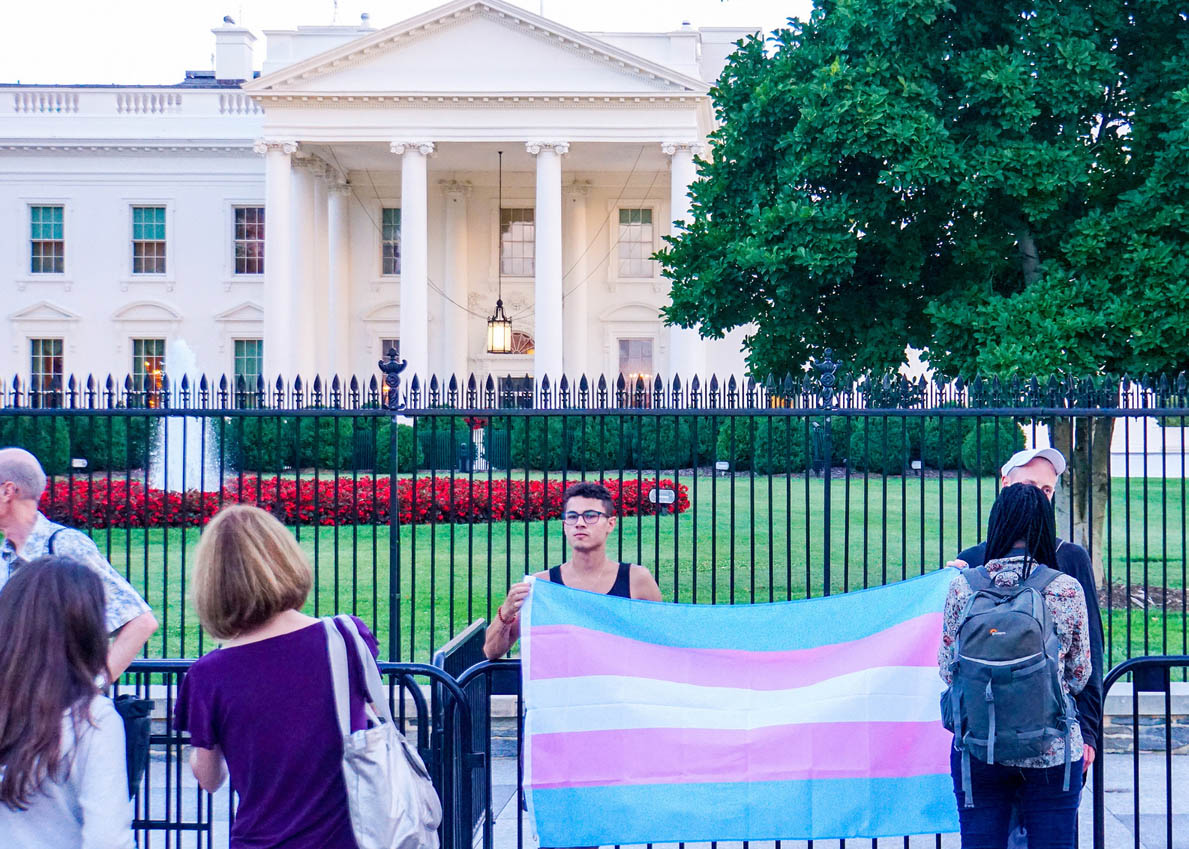Update 3/28/18: In light of recent news of a newly revised trans ban by the Trump administration, we are preparing a new post on the current situation (as best we can assess it). That will be available soon. Please check back.
On Oct. 30, the US District Court in Washington, DC ordered a preliminary injunction to halt Pres. Trump’s ban on transgender servicemembers. Congratulations to John & Jane Does I to VI, the plaintiffs, and GLBTQ Legal Advocates and Defenders (GLAD) and the National Center for Lesbian Rights, who represented them in this first challenge to the policy!
In a very strongly-worded opinion, the judge said that the ban appeared to violate Fifth Amendment rights to equal protection and due process, and that it “does not appear to be supported by any facts.”
The injunction will remain in effect while the case is litigated, unless it is lifted by an appellate court. Under the injunction, trans servicemembers can’t be discharged based on their gender, and new recruits should be allowed to enlist after Jan. 1, 2018, if they meet the criteria of the previous Obama policy. The court did not rule on the Trump policy’s ban on funds for reassignment surgery, saying that none of the plaintiffs were affected by that, but it is not clear if the military will continue to deny surgery.
This case is an important victory not just for transgender servicemembers, but for all of us concerned with civil rights and human rights.
Mara Keisling, executive director of the National Center for Transgender Equality: “Again and again, our courts have been forced to step in and halt this administration’s unconstitutional and dangerous bigotry. As today’s ruling makes clear, this ban was never about military readiness — just like President Trump’s Muslim bans have never been about national security. This ban is about discrimination, plain and simple. We are grateful that the plaintiffs and thousands of other troops will be able to continue serving without the threat of discharge while this case proceeds. Unfortunately, this ruling is not the end of the story, and these troops and their units will still face uncertainty unless Congress acts to end this ban for good.”



